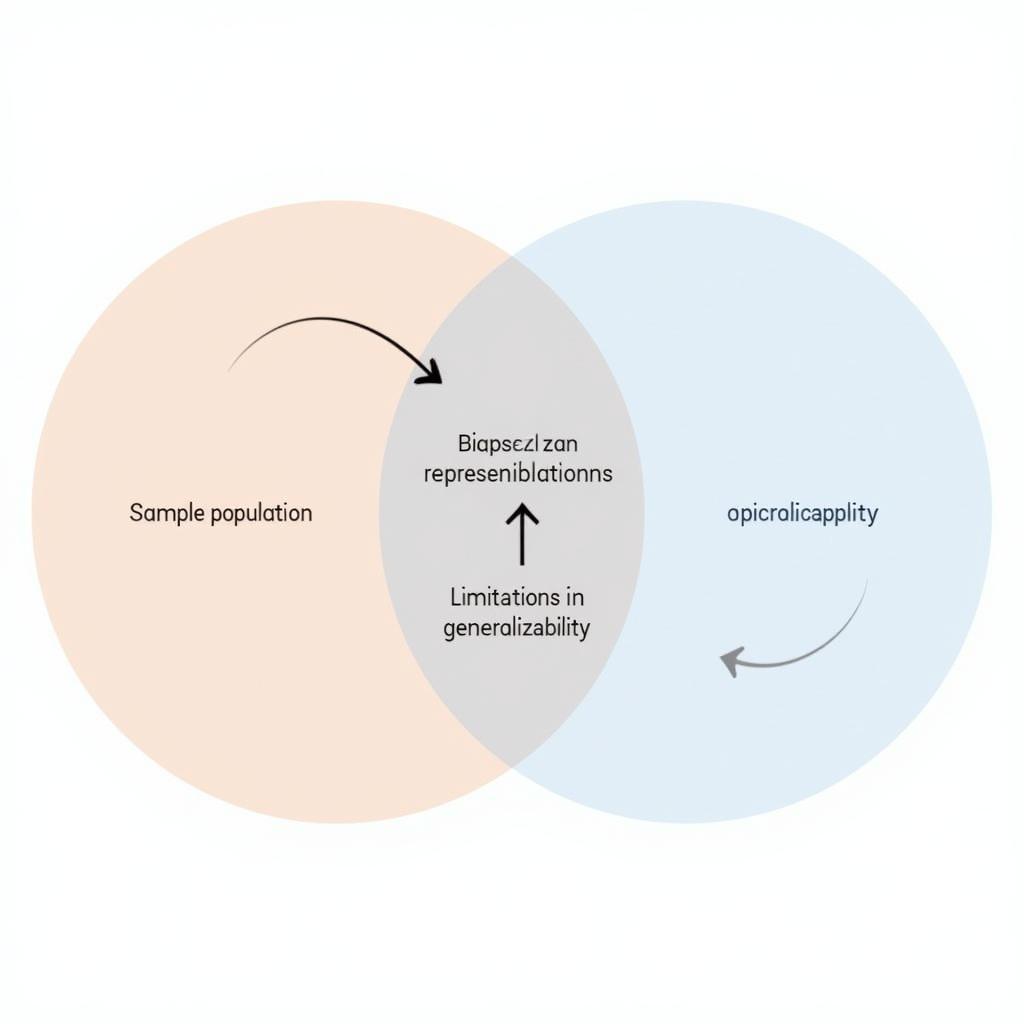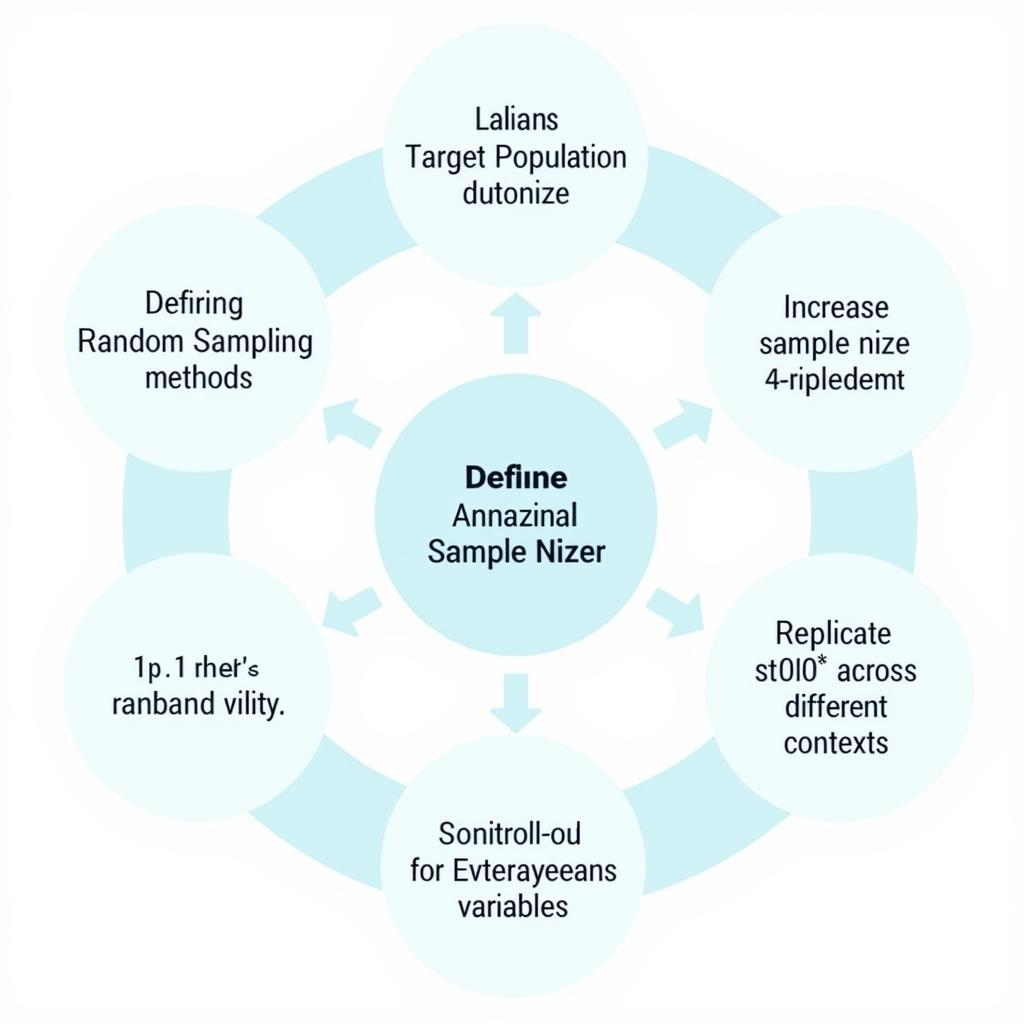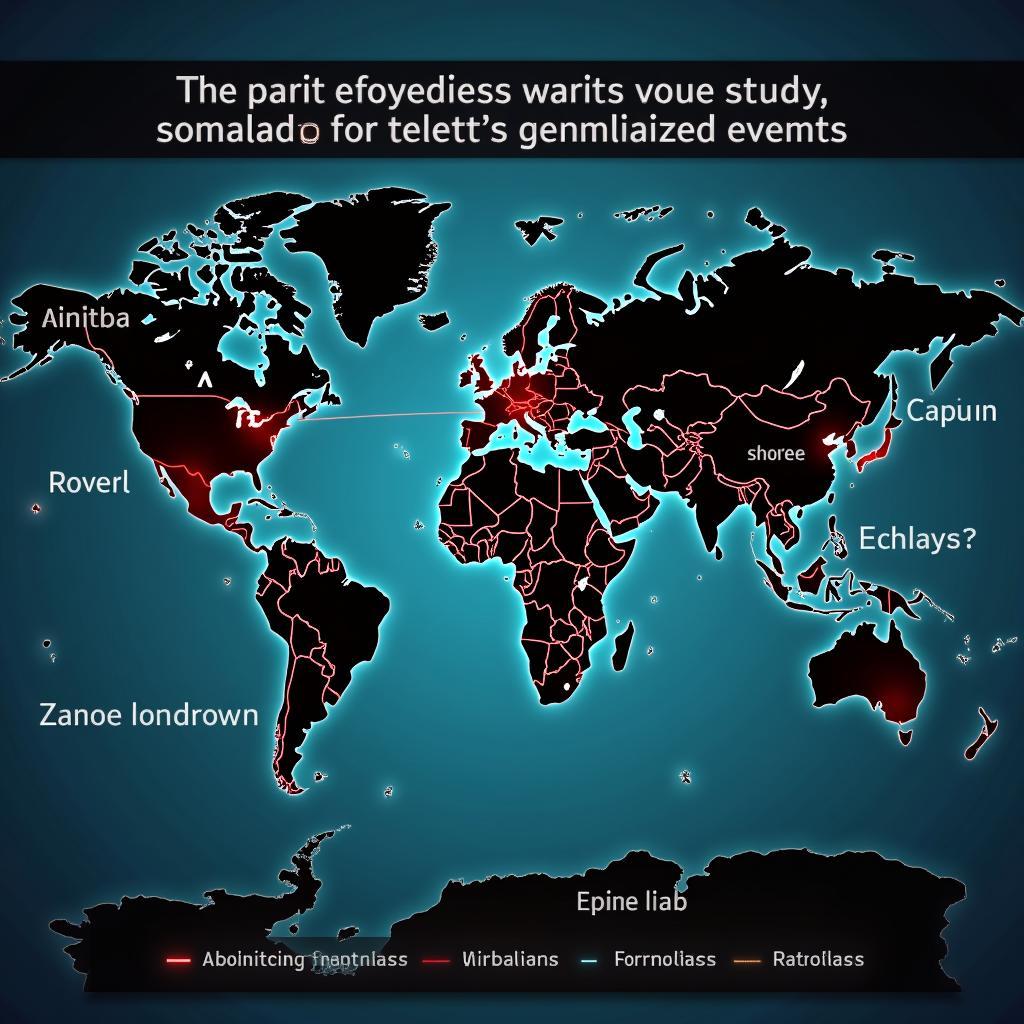Generalizability in research refers to the extent to which research findings can be applied to settings, populations, and other contexts beyond the original study. It’s a crucial aspect of research, as it determines how valuable and impactful the results are. Understanding generalizability in research is key to both conducting and interpreting research effectively.
Understanding the Importance of Generalizability
Why should we care about generalizability? Imagine spending months investigating a paranormal phenomenon only to find your conclusions apply solely to the one haunted house you studied. The power of your research lies in its ability to explain similar phenomena in other locations. That’s the essence of generalizability of research.
Threats to Generalizability
Several factors can limit generalizability. Sample size is a big one. If you’re studying poltergeist activity and only interview five witnesses, can you really claim your findings apply to all poltergeist cases? Probably not. Similarly, the specific characteristics of your sample can affect generalizability. If you’re studying precognitive dreams and only interview psychics, your findings might not apply to the general population.
 Threats to Generalizability in Research
Threats to Generalizability in Research
Generalizability in Qualitative vs. Quantitative Research
Generalizability works differently in qualitative and quantitative research. Quantitative research, focused on numbers and statistics, often aims for statistical generalizability, meaning the results can be generalized to a larger population. Qualitative research, which explores complex social phenomena through in-depth interviews and observations, prioritizes generalizability of qualitative research in a different way. It often aims for theoretical generalizability, meaning the findings can be used to develop or refine existing theories.
“Qualitative research, while not always statistically generalizable, can offer valuable insights into the nuances of human experience, especially in areas like paranormal research,” says Dr. Amelia Blackwood, a leading parapsychologist.
Enhancing Generalizability in Your Research
How can you enhance generalizability? Careful sampling is key. Make sure your sample is representative of the population you want to generalize to. Clear documentation of your methodology also strengthens generalizability, allowing others to replicate your study and verify your findings.
 Improving Research Generalizability
Improving Research Generalizability
Generalizability in Research Definition: A Practical Perspective
The generalizability in research definition is often understood in abstract terms. However, its implications are very real. Imagine investigating a haunted location. If your findings suggest a specific type of energy is responsible for the paranormal activity, how confident are you that this energy is present in other haunted locations? This is where generalizability comes in.
“When researching the paranormal, it’s crucial to acknowledge the limitations of our findings,” adds Professor Charles Beaumont, a renowned expert in anomalous phenomena. “While a single case study can be fascinating, it’s the patterns that emerge across multiple cases that truly advance our understanding.”
 Generalizability in Paranormal Research
Generalizability in Paranormal Research
Conclusion
Generalizability in research, particularly in the fascinating world of the paranormal, is essential for ensuring our findings are meaningful and impactful. By considering the factors that influence qualitative research generalizability, researchers can strengthen the value and relevance of their work.
FAQ
- What is the difference between internal and external validity?
- How can I improve the generalizability of my qualitative research?
- What are some common threats to external validity?
- Why is generalizability important in Paranormal Research?
- What are some examples of generalizable research findings?
- How does sample size affect generalizability?
- What is the role of replication in ensuring generalizability?
If you need assistance with your research, please contact us. Phone: 0904826292, Email: research@gmail.com. Or visit us at: No. 31, Alley 142/7, P. Phú Viên, Bồ Đề, Long Biên, Hà Nội, Việt Nam. We have a 24/7 customer support team.